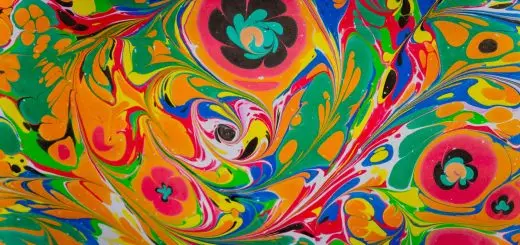Language and Identity: How Languages Shape Cultures

Looking for more amazing products? Check out our online store and explore our collection here! Happy shopping!
Before diving in, please note: This post is for informational purposes only. If you’d like to know more about how we approach topics, feel free to check out our friendly Disclaimer Page.
Hey there, amazing readers! 
We’re committed to delivering quality posts, and your support (even just sticking around despite the ads) means everything to us. So, bear with us, and thanks for helping us keep the good vibes rolling. Now, on to the fun stuff!
TRANSLATE BUTTON AT THE END OF THE ARTICLE
Language is more than a mere tool for communication; it’s a vital element that shapes identity and culture.
It acts as a bridge connecting individuals to their heritage, community, and worldview.
Here’s a deep dive into how language influences identity and the broader cultural fabric.
The Role of Language in Shaping Identity
1. Personal Identity
Self-Expression: Language allows individuals to express their thoughts, emotions, and personal experiences.
The way we speak often reflects our values, beliefs, and unique perspectives.
Cultural Connections: Through language, people connect with their ancestral roots, understanding and reliving traditions and customs.
2. Community and Group Identity
Shared Language: A common language fosters a sense of belonging among group members.
It strengthens social bonds and creates a shared cultural framework.
Cultural Practices: Language is closely tied to cultural rituals, stories, and practices, which are passed down through generations, preserving the community’s heritage.
Language and Cultural Expression
1. Traditions and Rituals
Cultural Transmission: Many cultural traditions and rituals are encoded in language.
Stories, songs, and ceremonial language often carry historical and cultural significance.
Preservation of Customs: Language helps preserve unique customs and practices by transmitting them through oral traditions and written records.
2. Art and Literature
Creative Expression: Language is a medium for artistic expression.
Literature, poetry, and art in various languages offer insights into different cultural values and historical contexts.
Cultural Reflection: Art forms in different languages reflect the society’s values, struggles, and achievements, providing a window into its soul.
Language and Social Dynamics
1. Power and Hierarchy
Language and Authority: The language spoken can influence perceptions of power and authority within a society.
For example, the use of a dominant language often correlates with higher social status.
Language Barriers: Language can also create social barriers, affecting access to resources and opportunities for those who speak less dominant languages.
2. Inclusivity and Exclusivity
Cultural Inclusion: Multilingual societies can foster inclusivity by embracing diverse linguistic backgrounds, promoting equality, and reducing cultural biases.
Exclusionary Practices: Conversely, societies that prioritize one language over others may marginalize speakers of less dominant languages, leading to social exclusion.
Language Loss and Cultural Impact
1. Endangered Languages
Cultural Erosion: The loss of a language often results in the erosion of cultural practices and traditions associated with it.
Language extinction can lead to a diminished sense of identity for affected communities.
Revitalization Efforts: Efforts to revitalize endangered languages can help preserve cultural heritage and restore a sense of identity for communities.
2. Globalization and Language Shift
Language Dominance: Globalization often leads to the dominance of major languages like English, which can overshadow smaller languages and cultures.
Cultural Adaptation: As languages evolve, they may adapt to new cultural contexts, leading to changes in traditional practices and cultural expressions.
Language and Personal Development
1. Cognitive Benefits
Multilingualism: Learning multiple languages can enhance cognitive abilities, such as problem-solving skills and memory, while also broadening one’s cultural understanding.
Perspective Taking: Exposure to different languages and cultures can foster empathy and a more nuanced perspective on global issues.
2. Career and Social Opportunities
Professional Advantages: Language skills can open doors to diverse career opportunities and enhance professional networking in a globalized world.
Social Connections: Being multilingual can facilitate connections with people from different backgrounds, enriching personal and professional relationships.
Conclusion
Language is a fundamental aspect of identity and culture.
It shapes how individuals see themselves and their place in the world, influences community bonds, and reflects cultural expressions.
As languages evolve and adapt, they continue to play a crucial role in preserving cultural heritage and fostering personal and social connections.
Embracing linguistic diversity enriches our understanding of the human experience and strengthens the global cultural mosaic.

The Enlightenment Journey is a remarkable collection of writings authored by a distinguished group of experts in the fields of spirituality, new age, and esoteric knowledge.
This anthology features a diverse assembly of well-experienced authors who bring their profound insights and credible perspectives to the forefront.
Each contributor possesses a wealth of knowledge and wisdom, making them authorities in their respective domains.
Together, they offer readers a transformative journey into the realms of spiritual growth, self-discovery, and esoteric enlightenment.
The Enlightenment Journey is a testament to the collective expertise of these luminaries, providing readers with a rich tapestry of ideas and information to illuminate their spiritual path.
Our Diverse Expertise
While our primary focus is on spirituality and esotericism, we are equally passionate about exploring a wide range of other topics and niches 

To ensure we provide the most accurate and valuable insights, we collaborate with trusted experts in their respective domains 
Our blog originally focused on spirituality and metaphysics, but we’ve since expanded to cover a wide range of niches. Don’t worry—we continue to publish a lot of articles on spirituality! Frequently visit our blog to explore our diverse content and stay tuned for more insightful reads.
Hey there, amazing reader! 
Check out our store here and take a peek at some of our featured products below! Thanks for being awesome!










